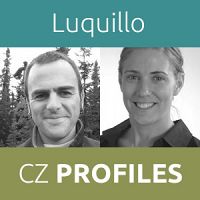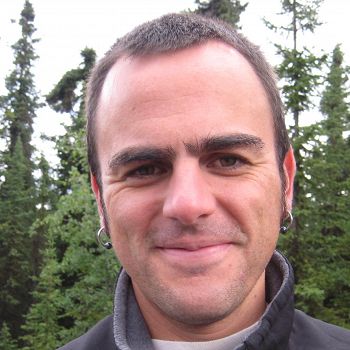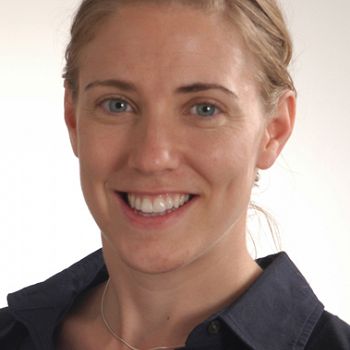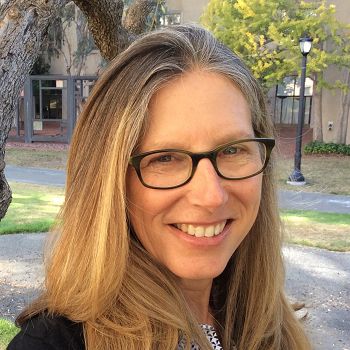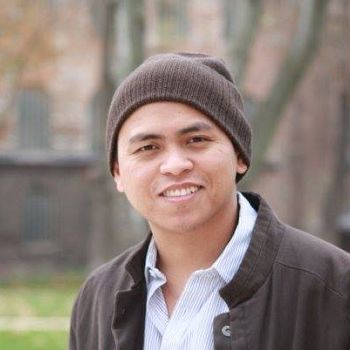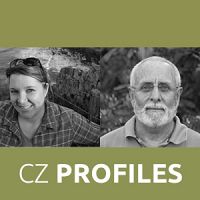Critical Zone Profiles - Meet the people doing CZO science (Luquillo CZO)
What kind of work do critical zone scientists do? Who are some of the scientists working at Critical Zone Observatories across the country? How does their work inform our understanding and management of critical zone resources, such as water, soil, and food?
These brief profiles feature just a few of the 250+ senior scientists, university faculty, postdoctoral researchers, and graduate students who work at the nine CZO sites currently funded by the National Science Foundation. CZO people are cross-disciplinary scientists who have expertise in fields including hydrology, geochemistry, geomorphology, ecology, biology, and climatology. More profiles will be added over time, as new scientists join the CZO teams.
The profiles provide a non-technical introduction to the work CZO people do. Each scientist was asked to respond to the following questions:
1. What is the goal of your work?
2. How is your work relevant to the science community and to the larger human communities in which we live?
3. Why is studying the critical zone important?
4. How has the CZO network been valuable to you in your work?
5. How can the CZOs help improve our understanding and management of natural resources?
Profiles: Grad Students | Early Career | Boulder | Calhoun | Catalina-Jemez | Eel | IML | Luquillo | Reynolds | Shale Hills | Southern Sierra | and more profiles coming
LUQUILLO CZO
ADAM WYMORE (freshwater ecologist, post-doctoral researcher)
Adam Wymore is an ecologist who studies how energy and nutrients move through the environment, especially into and through freshwater ecosystems. Adam is particularly interested in how different types of organic matter (that is, carbon-based molecules) react during their downstream export. Adam’s research looks at something scientists currently know very little about: how the molecular composition of carbon molecules determines their fate within the environment. Visit Adams's profile >
JANE WILLENBRING (geomorphologist, Assistant Professor)
Jane Willenbring works to understand the dynamic interaction between life and landscape, or the “Science of Scenery,” as she likes to call it. She studies the linkages between the landscape, streams, atmosphere, and the plants and animals that make up the forest ecosystem in the Luquillo Critical Zone Observatory, in Puerto Rico. Willenbring uses a variety of methods from lab-scale to field-scale observations and geochemical analyses to understand how different processes are coupled and how the landscape is formed and evolves over time. Visit Jane's profile >
WHENDEE SILVER (ecosystem ecologist, Professor)
Whendee Silver explores the effects of anthropogenic climate change and land use on the structure and function of the ecosystems that living creatures depend upon for clean air, clear water, food, and fiber. Whendee’s research focuses on three general and related topics. The first is how energy and nutrients cycle through the environment and how these cycles shape the structure and functioning of ecosystems. The second is the production and emissions of greenhouse gases, and the third is climate change mitigation through land management. For this research Whendee is exploring the potential of composted organic material (food waste, agricultural waste, and green waste) as an amendment to grasslands to enhance carbon sequestration, while simultaneously lowering greenhouse gas emissions from the urban and agricultural sectors. Visit Whendee's profile
JAIVIME EVARISTO (ecohydrologist, PhD student)
Jaivime Evaristo is an ecohydrologist who seeks to understand how vegetation dynamics in general, and root-water uptake in particular, affect stores of water and nutrients from hillslope to ecosystem and continental scales. He uses geochemical tracers (mostly stable isotopes) to improve our model representations of local to regional and global water fluxes. Visit Jaivime's profile >
Explore Further
